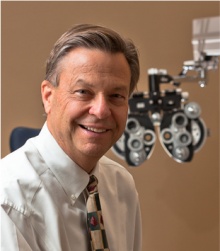
Dr. Laura Barnes, DVM, DACVO
Ophthalmologist
4434 Frontier Trl Austin TX, 78745About
My name is Dr. Laura Barnes. I am a board-certified veterinary ophthalmologist working at a multispecialty veterinary practice in Austin Texas. I have been at the practice since I finished my residency 12 years ago. I am boarded in the American College of Veterinary Ophthalmology. I have been a veterinarian in general for 17 years. I am certified to treat multiple ocular abnormalities in dogs and cats including trauma, corneal ulcers, corneal lacerations, corneal foreign bodies, glaucoma, removal of cataracts (cataract surgery with lens replacement), repair of corneal perforations, treatment of feline herpes virus, eyelid and eyelash abnormalities. I work closely with the other specialist (internal medicine, neurology, emergency and critical care) in the hospital to provide the best care for our patients and to make sure they have the best quality care possible.
Education and Training
Cal Poly Pomona, California BS and chemistry minor 2001
Ross University DVM 2005
University of MO residency, DACVO 2010
Provider Details
Areas of expertise and specialization
Faculty Titles & Positions
- Veterinary Ophthalmologist Central Texas Veterinary Specialty and Emergency Hospital 2010 - Present
Awards
- Veterinary Comparative Ophthalmology Intern Award 2007 University of MIssouri College of Veterinary Medicine
- Intern of the year, medical and surgical rotating internship 2006 University of Saskatchewan, Western College of Veterinary Medicine
- Excellence in Veterinary Clinical Ophthalmology 2005 University of MIssouri College of Veterinary Medicine
Professional Memberships
- AVMA
- ACVO
Internships
- Ophthalmology intern; University of Missouri, college of veterinary medicineRotating surgical and medicine intern; University of Saskatchewan, Western College of Veterinary Medicine
Fellowships
- N/A
Professional Society Memberships
- American Veterinary Medical AssociationAmerical College of Veterinary Ophthalmologist
Articles and Publications
- Barnes LD, Giuliano EA, Ota J, Cohn LA, Moore CP. The effect of photodynamic therapy on squamous cell carcinoma in a murine model: Evaluation of time between intralesional injection to laser irradiation. The Veterinary Journal YTVJL-D-07-00603; In PressBarnes LD, Grahn BH. Actinomyces endophthalmitis and pneumonia in a dog. Canadian Veterinary Journal 2007;48:1155-1158 Grahn BH, Barnes LD, Breaux CL, Sandmeyer LS. Chronic retinal detachment and giant retinal tears in 34 dogs: Outcome comparision of no treatment, topical medical therapy, and retina reattachment after vitrectomy. Canadian Veterinary Journal 2007;48:1031-1039
Areas of research
- photodynamic therapy for the treatment of squamous cell carcinoma in horses
Awards
- 2007Veterinary Comparative Ophthalmology Intern Award, University of Missouri Columbia, College of Veterinary Medicine 2006Intern of the Year, University of Saskatchewan, Western College of VeterinaryMedicine2005Excellence in Veterinary Clinical Ophthalmology, University of Missouri-Columbia,College of Veterinary Medicine2003Outstanding Surgical Team in Large Animal Surgery, Ross University, School ofVeterinary Medicine
Teaching and speaking
- Ophthalmology, Eyes for Austin: CE event for the local Austin Veterinarian put on by CTVSEH, 2021 (virtual conference)Ophthalmic Emergencies: CE event for the local Austin Veterinarians put on by CTVSEH, 2020 Normal Canine Fundus and Variation, Austin Retinal Associates Annual Conference, 4/2019The effect of photodynamic therapy on squamous cell carcinoma in a murine model: Evaluation of time between intralesional injection to laser irradiationResident / Intern Seminar, UMC-College of Veterinary Medicine, November 16, 2007Local photodynamic therapy for squamous cell carcinoma in a murine model; Effect of laser dose (J/cm2)Resident / Intern Seminar, UMC-College of Veterinary Medicine, March 30, 2007.Local photodynamic therapy for squamous cell carcinoma in a murine model; Effect of laser dose (J/cm2)Phi Zeta Research Day, UMC-College of Veterinary Medicine, March 23, 2007. Canine and Feline UveitisResident / Intern Seminar, University of Saskatchewan, Western College of Veterinary Medicine, 2005.Collie Eye AnomalyStudent Presentation, UMC-College of Veterinary Medicine, 2005.
Favorite Place to Vacation
- Mountains
Hobbies / Sports
- Crossfit, mountain biking, kayaking, hiking, road cycling, legos
Dr. Laura Barnes, DVM, DACVO's Practice location
Central Texas Veterinary Specialty & Emergency Hospital
4434 Frontier Trl -Austin, TX 78745Get Direction
Dr. Laura Barnes, DVM, DACVO's reviews
Write ReviewMedia Releases
Get to know Veterinary Ophthalmologist Dr. Laura Barnes, who serves patients in Texas.
Dr. Barnes is a board-certified veterinary ophthalmologist who has been working at Central Texas Veterinary Specialty & Emergency Hospital in Austin, Texas since the summer of 2010. She enjoys the difficulties and challenges of cataract surgery as well as eyelid and corneal surgery.
With a love for all aspects of veterinary ophthalmology and its mix with other specialties, Dr. Barnes is certified to treat multiple ocular abnormalities in dogs and cats including trauma, corneal ulcers, corneal lacerations, corneal foreign bodies, glaucoma, removal of cataracts (cataract surgery with lens replacement), repair of corneal perforations, treatment of feline herpes virus, as well as eyelid and eyelash abnormalities. She works closely with other specialists (internal medicine, neurology, emergency and critical care, oncology and surgery) in the hospital to provide the best care for patients and to make sure they have the best quality care possible.
Born in California, Dr. Barnes graduated with her Bachelor of Science degree in Animal Science, with a minor in Chemistry, from California Polytechnic State University in 2001. She then went on to earn her Doctor of Veterinary Medicine degree from Ross University College of Veterinary Medicine in 2005, after which she performed her general rotating internship in small animal medicine and surgery at the University of Saskatchewan Western College of Veterinary Medicine. From there, she furthered her training with an internship in ophthalmology and a residency in comparative veterinary ophthalmology at the University of Missouri College of Veterinary Medicine.
Boarded in the American College of Veterinary Ophthalmology, Dr. Barnes has been a veterinarian in general for nearly two decades. She enjoys helping her clients understand their animal’s ocular disease and treatment options.
An active member of the American Veterinary Medical Association and the American College of Veterinary Ophthalmologists, her areas of research include photodynamic therapy for the treatment of squamous cell carcinoma in horses.
Ophthalmology is a branch of medicine and surgery, which deals with the diagnosis and treatment of eye disorders. A veterinary ophthalmologist is a veterinarian who specializes exclusively in treating eye disorders in animals.
When not working, Dr. Barnes can be found on her mountain or road bike. She also enjoys photography, crossfit, building legos, hiking, weightlifting, yoga, and Pilates. She has one dog, Molly and one cat, named Black.
Recommended Articles
- What is Cataract Surgery?
The exact cause of cataracts is not known. Nevertheless, it seems that most cataracts are caused by long-term variations in the eye lens protein components which in turn causes cloudiness in the lens. Though not common, cataracts can affect infants and young children due to genetic enzyme...
- What is Chalazion? Know about its Symptoms, Causes and Treatment
What is Chalazion?A chalazion is a benign and painless nodule which can occur in the upper or lower eyelid. It is common and is sometimes called a meibomian cyst or a tarsal cyst. The term chalazion (pronounced kah-la'-ze-on) originates from the Greek word which means a small lump. These nodules...
- What is Age-Related Cataracts?
When the eye lens changes with age, cataracts develop and your vision becomes blurry. A clear structure, the lens is located at the back of the pupil. Light streams in via the cornea and the lens directs it to the retina when it enters the eye.When you start to age, cataracts can begin developing,...
- How to Prepare for Cataract Surgery
The normal process of aging is the leading cause of cataracts. The eye’s lens slowly loses its clarity and gets cloudy as we age. As a result, the quality of vision decreases. Cataract surgery is recommended when your life’s quality starts to suffer.It is important to know how to prepare...
- Are Colored Contact Lenses Safe?
Contact lenses are popular for its two most important characteristics: flexibility and convenience. Based on their usage, contact lenses are categorized into two types: vision correcting lenses, and decorative lenses. Decorative lenses are used to improve the look of the eyes. Generally, these...
- Eye Twitching: Causes and How to Stop It
What is eye twitching?While it may seem like a normal experience of the eye, eye twitching could become irritating and could be a cause for concern when it persists for a long period of time and with higher frequency. In medical terms, eye twitching is known as blepharospasm, which is defined as an...
Nearby Providers
- Dr. William McGlathery MD4207 James Casey St Austin TX 78745
- Dr. Peter Broberg M.D.4207 James Casey St Austin TX 78745
- Dr. Maureen M Alexander MD4207 James Casey St Austin TX 78745
- Dr. Zarmeena Vendal MD4207 JAMES CASEY ST Austin TX 78745
- Dr. Chirag Dilip Jhaveri M.D.2500 W. William Cannon Drive Austin TX 78745
- Dr. Sean Paul MD4316 James Casey Street Austin TX 78745
Nearest Hospitals
UNIVERSITY MEDICAL CENTER AT BRACKENRIDGEl
601 E 15TH STREET AUSTIN TX 78701ST DAVID'S SOUTH AUSTIN MEDICAL CENTERl
901 WEST BEN WHITE BLVD AUSTIN TX 78704ARISE AUSTIN MEDICAL CENTERl
3003 BEE CAVES ROAD AUSTIN TX 78746










